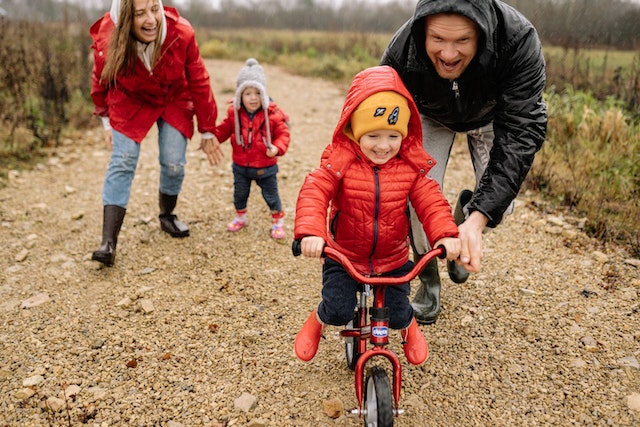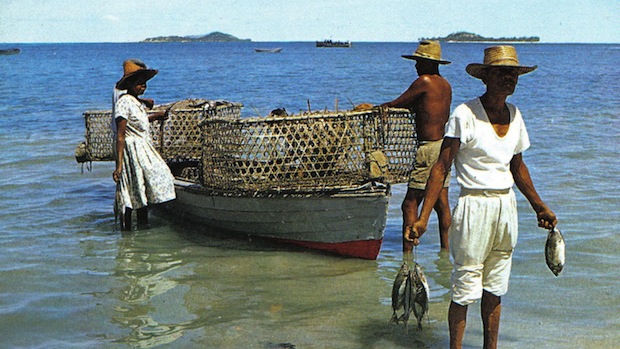

Children are a powerful and endless source of wonder. They see things with fresh eyes and marvel at everyday things others have grown accustomed to. They also have a tremendous capacity for learning. There’s no reason why they can’t soak up valuable knowledge while they’re young, especially when it comes to environmental education, which is more important than ever in today’s world.
Contents
The Importance of Helping Kids Become Environmentally Aware
Teaching kids about the environment is essential because they will grow up to be environmentally aware adults. They can make a difference in their own lives, and they can make a difference in the world. Teach your child how he or she can help save energy by turning off lights when exiting rooms. These materials can be recycled using reusable water bottles rather than disposable ones.
It’s not just teaching your children that they need to take care of the planet. It’s also teaching them how they can make small changes throughout their day that will impact the environment as a whole.
Teach Your Kids About the Issue of Climate Change
If you want to teach your kids about climate change, it’s essential to explain that it’s real and caused by human activity. Explain that the effects of climate change can already be observed; droughts, floods, hurricanes, and other natural disasters are becoming more frequent. These events can be devastating for people who live in areas where they happen regularly.
You should also explain that if you don’t do anything about climate change now, there could be severe consequences for the planet in the future. For example, there can be rising sea levels could flood coastal cities, droughts could destroy crops, and ice caps will melt faster than they can form again.
If your children are old enough to understand these issues, this is an opportune time to talk about what they can do to help reduce their carbon footprint or contribute positively toward a greener world. Studies show that climate education can reduce future carbon emissions, making it essential to climate-change mitigation.
Encourage Your Children to Understand the Benefits of Recycling and Reusing
Teach your kids to be proud that they are helping the earth by recycling and how to do it correctly. The most important thing is for them to realize the positive impact on their environment that comes from making an effort to recycle.
Your kids should understand why it’s important to reuse materials instead of throwing them away. Remember that you can always use old clothes and toys at home as well as in school, so teach your child how they can use these items again instead of just throwing them away.
Kid-friendly resources about recycling are easily available online, and it is a fun way to teach your kids about recycling. Children are naturally curious, so they will be interested in learning how recycling works and how it helps the environment.
There are many websites that provide recycling information for children. There are also some great books you can check out from your local library or bookstore that will teach your child about recycling.
Inspire a Love of Science and Nature with Age-Appropriate Activities
Environmental education is a powerful tool for kids to learn about the world around them. Through nature and science, children can understand how the environment works, how they can make a difference in their own neighborhoods, and how to treat the planet respectfully. A study published by the OECD in 2020 found that the social-emotional skills that small children develop can have a lasting and significant impact on their lives later.
By exposing your children to a range of experiences that stimulate their senses and encourage creativity, intelligence, social skills, and self-confidence, you’ll help them develop strong bonds with nature that will last throughout their lives.
You can get started by encouraging your children’s curiosity about everything around them, from the patterns on leaves to how clouds form in the sky or why rocks look different from one another. Then try some simple experiments at home (like growing plants) or go on field trips together to have real-world examples of what they’ve learned about nature’s beauty outside school walls.
Help Your Kids Learn Respect for Animals and Their Habitats by Visiting a Zoo
Help your kids learn respect for animals and their habitats by volunteering or visiting a wildlife park or zoo. A study conducted in 2021 indicated that zoo tours could help young people develop a sense of connection with nature.
Through volunteer work, children can learn about protecting wildlife and their habitats. They can also learn how to protect animals from predators and poaching and prevent pollution that would harm the animals’ habitats. This will teach them important lessons about respecting creatures living in different environments worldwide.
Work with Your Children to Develop Good Habits
You know that just throwing away your trash doesn’t do anyone any good, and hopefully, you feel pretty good about being smart about recycling and reusing. But did you also know that wasting food is also wasteful? Food waste is a big issue when it comes to garbage, especially with kids.
They can be fussy eaters who throw away their leftovers or leave food in their lunchboxes too long. Teach them good habits from the start by ensuring they understand why it’s important not to waste food, and then show them how easy it can be for them to save money, time, and water by making the right choices when they’re young.
Learning how much energy is used daily might seem like an adult thing, but kids can learn this too. Teach them how much power each appliance uses, so they’ll know which appliances are better energy-wise than others. Then teach kids why conserving water is important. It helps keep the planet healthy.
You can find resources online to help you out. For example, the Environmental Protection Agency has a page full of resources dedicated to teaching children about the importance of water conservation.
Conclusion
Teaching children about the environment can be as simple as taking them for a walk outside or teaching them about different types of trees and flowers. Research shows that when children play in nature, they are more likely to develop better physical fitness, motor skills, cognitive learning, and social and emotional development.
You can help your child become a responsible citizen by giving them an early start on environmental awareness. Start with small things, like showing them how to recycle and reduce their waste, and then build up from there. Kids need to learn how their actions impact the environment, so encourage them to think about what they’re doing when it comes time for dinner or bath time.



